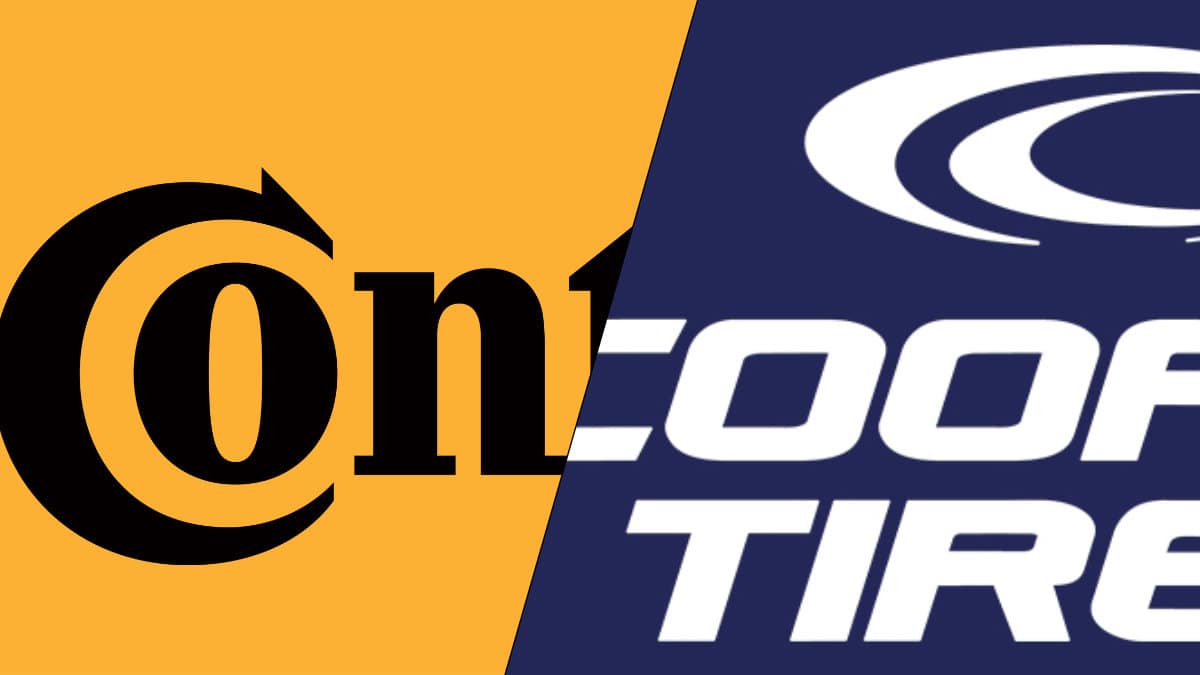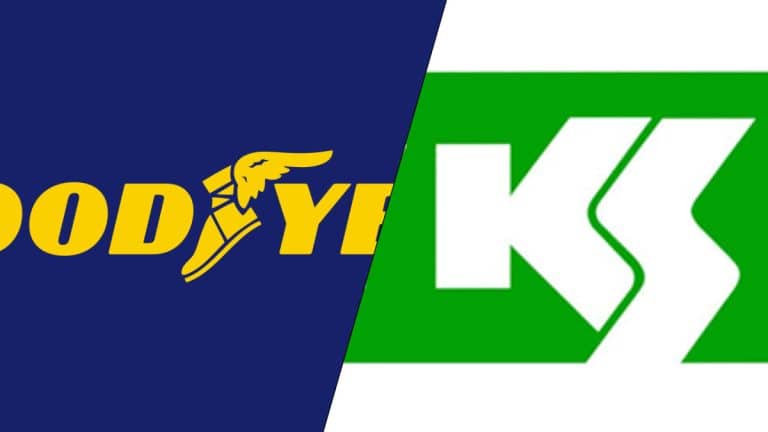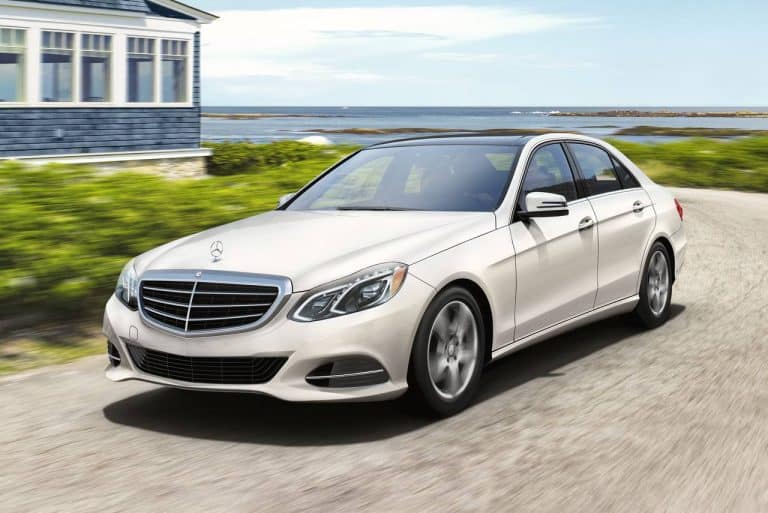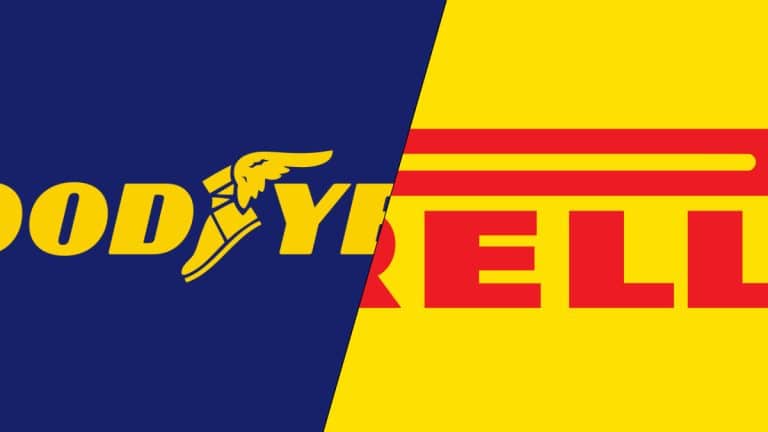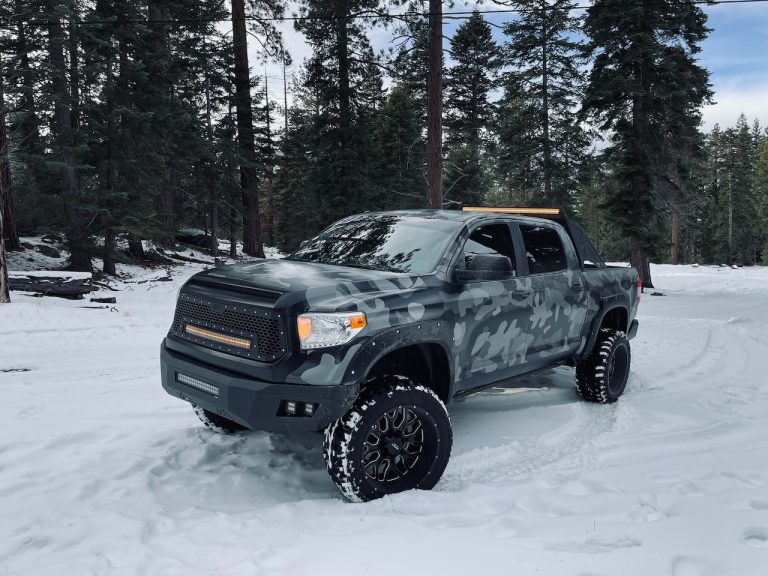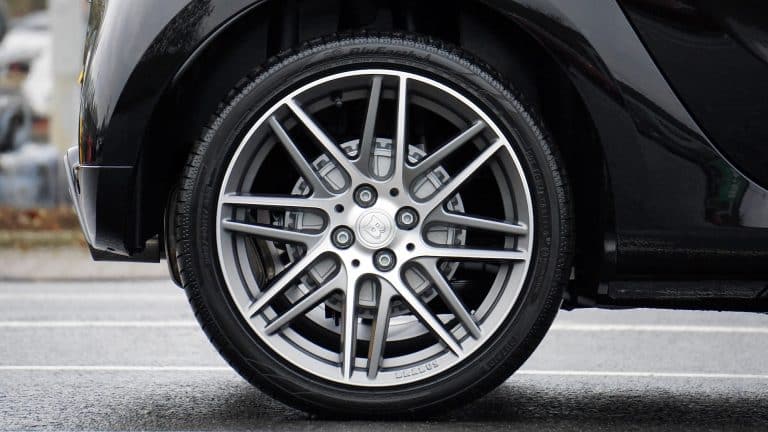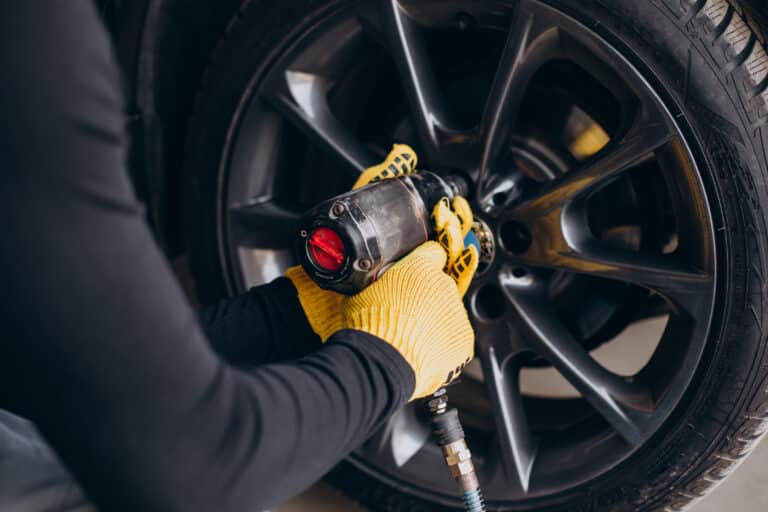Cooper vs Continental Tires
Cooper and Continental are giants in the tire industry. At the time of writing, Cooper is the 14th largest tire manufacturer globally, with annual profits of just over 2.5 billion dollars. Last year alone, Cooper sold more tires than many small tire brands manage to do in their lifetime.
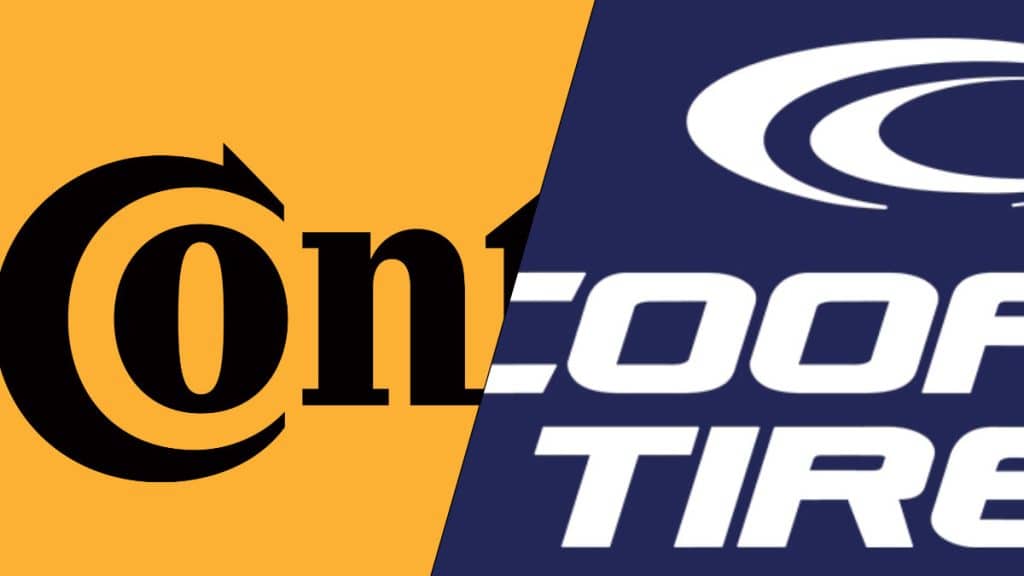
Cooper Rating: 4.5/5
Continental Rating: 4.0/5
As intimidating as these numbers are, they don’t faze Continental, the world’s 4th largest tire brand. The German tire manufacturer stands behind only three others on the ranking leader, with consolidated sales of just under €34 billion in 2021, a 6% increase on a year-on-year basis.
Sure, it’s a fact that Cooper is an affordable tire brand and Continental targets the well-heeled buyers. But that doesn’t mean their paths do not cross in the market. There are various tire categories where Cooper and Continental regularly battle for the buyer’s attention (and money).
Thus, the stage is set for the ultimate Cooper Vs Continental tires showdown. The winner of which will earn the right to be installed on your car for years to come.
Cooper Tires History
Cooper Tire & Rubber Company was founded in 1914 in Akron, Ohio, the city which is the birthplace of multiple globally renowned tire brands. At the time of its birth, Cooper was referred to as M and M Manufacturing. What’s more, its product assembly line didn’t include tires.
All of that was to change in 1921. That was the year in which Cooper’s founders decided to include Giant Tire & Rubber Company in their investment portfolio. This acquisition was followed by the merger of both companies and the shifting of their combined headquarters to Findlay.
It was in Findlay that Cooper Tire & Rubber Company was officially born. The new tire brand distinguished itself from the existing ones by producing high-quality tires on a budget. It was a difficult balance to strike – performance and cost often go along – yet Cooper managed to do it.
How can we be so sure of that? The fact that we’re talking about Cooper Tires in 2022, more than a century after its second birth date, is a major convincing factor. Another is Cooper’s lofty yet justified ranking in the list of the largest tire manufacturers. Yet another is its profit sheet.
Cooper’s Tire Families
There are seven families in Cooper’s tires lineup. These are Endeavor, WeatherMaster, Zeon, Discoverer, CS, WM and Evolution. As is the case with siblings raised by same parents, not all these tire lineups are equally good. So, make sure to only opt for the dependable ones.
Endeavor
There are three tires in this family of all-season touring tires. The first of which is the Cooper Endeavor, which is also the pioneer. This model comes with an excellent treadwear warranty, has refined road manners, and offers decent wet traction. All in all, it offers great value for money.
The same couldn’t be said about the Endeavor Tour. While also aimed at passenger cars, this tire is costly than an average model from this brand. Yet it is still inexpensive than its counterparts from premium manufacturers. The SUV and CUV-oriented Endeavor Tour completes this lineup.
CS
Cooper’s CS family is also populated by all-season touring tires. Yet that is where its similarities end with the Endeavor tire lineup. Unlike its rival family, the CS lineup has no room for a new member. It is bursting to the seams with tires for almost every car you see on the road.
The CS5 Grand Touring and CS5 Ultra Touring might be the more popular tires of this family. But that doesn’t mean the others are any less reliable. All four tires, from the CS1 to CS4, are as dependable on the road as their more famous siblings. The same thing could be said about the CS7.
Zeon
Tires from the abovementioned lineups might find it difficult to stay on the heels of Zeon tires. That is because every member of this family is a performance tire. That means that Zeon tires offer superb high-speed stability and give an excellent feedback to the driver.
The Zeon RS3-G1, RS3-S, and RS3-A are designed to be installed on passenger cars. SUV and CUV owners have no choice but to settle for the Zeon LTZ. This explains why, while the first three tires can only be used on the highway, the LTZ comes in handy for light off-roading too.
WM and WeatherMaster
Given that both these families contain dedicated winter tires, it made sense to group them under the same heading. The WM lineup contains only two tires – the WM SA2+ is for passenger cars; the WM can be installed on SUVs, CUVs, and light trucks.
Similar to the WM family, the WeatherMaster lineup also has only two tires to offer to drivers. Unlike it, however, both members of this family can only be installed on SUVs or light trucks. Another difference is that both tires are pinned to let you add studs for extreme winter performance.
Discoverer
There is no shortage of options in the Discoverer family. All-season, all-season touring, winter, performance, or even off-road. No matter which category of tires you’re searching for, there will most likely be a model in this lineup ready to serve you.
Need proof? The Discoverer All-Season is ideal for everyday driving on the highway. The Discoverer M+S is a must-have if winter has already arrived in your part of the woods. Outdoor enthusiasts, meanwhile, will find plenty to like about the STT Pro, AT3 4S, and S/T MAXX.
Evolution
Cooper’s Discoverer and Evolution lineups have one thing in common: both are incredibly well-stocked. This means that the Evolution family also contains all-season, mud-terrain, touring, all-terrain, performance, and even winter tires.
Cooper Evolution Winter and Evolution Tour are the two most famous members of this family. The former has what it takes to plough through sheets of snow. The latter, meanwhile, is a feature-rich yet pocket-friendly all-season touring tire.
Continental’s History
Continental is the younger of the two tire brands. And not just by a few years. The German multinational had a 40-year head start over its American counterpart. It means that by the time Cooper started making its place in the tire industry, Continental was already a household name.
However, as the cliché goes, age is just a number. Many tire companies were already working when Continental was founded in Hannover, Germany, in 1871. The fact that none of them exist today indicates that age alone isn’t to credit for Continental’s stunning success.
Instead, it is Continental’s unyielding devotion to innovation that has helped it along. For instance, Continental tires were the first to feature a groove beneath their tread area. This small tweak in the design made the tires more controllable than any other available back then.
That was way back in 1904. Over the next 120 years, Continental tires have experienced several innovations that have helped them retain the premium tag. Had that not been the case, Continental wouldn’t be the 4th largest tire manufacturer globally today.
Continental Tire Families
Four families complete Continental’s tire lineup. These include ultra-high-performance or UHP, touring and grand touring, all-terrain or AT and winter tires. All these lineups offer tires for passenger cars, sport coupes, SUVs, CUVs, and light trucks.
Ultra-High-Performance
Twelve tires complete Continental’s UHP family. All of them have plenty of things in common, including excellent steering response, enhanced high-speed stability and aggressive cornering performance. Bear in mind, though, that the members of this family do not come cheap.
Need proof? The Continental ExtremeContact DWS06 and PremiumContact 6 tires give you plenty. Both these tires have all the features discussed in the previous paragraph. Yet, their respective asking prices can wipe out all your savings on one go.
Touring and Grand Touring
Continental’s touring and grand touring tires strike an optimal balance between performance, reliability and cost. Sure, these tires aren’t as inexpensive as their rivals from Cooper. At the same time, their asking prices are smaller than Michelin’s or Bridgestone’s T and GT tires.
The CrossContact LX25 is our favorite model from this lineup, not least because Continental backs it with a generous 70,000-mile warranty. If you want to add flair to your highway rides, check out the PureContact LS. Finally, for premium highway performance, the VikingContact 7 is ideal.
Winter
There are four features you need to look out for when searching for dedicated winter tires. They include: Three-Peak Mountain Snowflake Emblem, M+S certification on the tread area, flexible tread compound that won’t freeze in sub-zero temperatures, and multiple biting edges.
Guess what? All of Continental’s dozen winter tires possess these features. Their price might be a sticking point – these tires seem prohibitively expensive when compared with Cooper’s winter offerings – yet their winter performance won’t let you doubt your decision-making skills.
All-Terrain
There are only two members in Continental’s all-terrain family. Yet, if the TerrainContact A/T gives us any clue, it is that two are more than enough. From crawling through rocks to zigzagging through the muddiest of terrains, this tire has what it takes to navigate the harshest of off-roads.
Bear in mind that the TerrainContact A/T cannot be installed on large trucks. For that purpose, the TerrainContact™ offers its services.
Cooper Vs Continental Tires: Differences
Here are the major differences between Cooper and Continental tires:
Performance
Cooper’s performance tires are no match for their counterparts from Continental.
The Continental SportContact 7 shows why we’re saying that. There isn’t any tire from Cooper that could rival the SportContact7 in terms of cornering performance, steering response, and high-speed stability. This model’s dry grip and wet traction are also unrivaled.
That isn’t to say that this model doesn’t have any flaws – the absence of any treadwear warranty will be a deal-breaker for many people. Still, as far as extreme performance is concerned, there aren’t many Cooper tires that could keep up with this beast.
Availability of Options
There is no winner as far as the availability of options is concerned.
Cooper and Continental both offer tires for every road condition, vehicle, and weather condition. Both these tire manufacturers have all-season, touring, performance, high-performance, winter and even off-road models in their product lineups. So, it’s impossible to choose a winner here.
Price and Warranty
Here is one area where Cooper moves ahead.
Not only are Cooper tires inexpensive – hence targeting the shopper who is in the market for a budget-friendly set of tires. But Cooper tires come with bigger warranties too. The Cooper CS5 Grand Touring, for instance, comes with an 80,000-mile warranty.
The CrossContact LX25, Continental’s answer to the CS5 Grand Touring, is backed for 70,000 miles. And it isn’t only its all-season touring tires that are backed for longer periods. Cooper’s performance tires also come with longer warranties than their counterparts from Continental.
Advantages of Cooper
- Backed with bigger warranties
- Are also affordably priced
- Wide range of options
Advantages of Continental
- Better performance and high-performance options
- Offer livelier handling and enhanced steering response
- All-terrain tires are much more dependable
Cooper Vs Continental Tires: Which Brand to Choose?
Cooper tires deserve your attention if you’re on a budget, want to opt for tires that come with extensive warranties and spend most of your time behind the wheel on the highway. Continental tires are worth a shot if you want extreme performance and are willing to pay over-the-odds for it.
